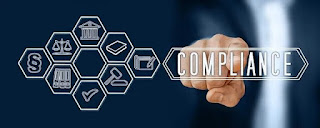The Importance of Compliance Hiring in Today's Business Landscape

In today’s swiftly evolving business panorama, compliance has emerge as more than only a felony requirement—it is a cornerstone of sustainable fulfillment. With regulatory frameworks tightening throughout industries, the need for professional compliance specialists has never been more pressing. At Conselium Compliance Search, we apprehend the crucial importance of compliance hiring in safeguarding businesses in opposition to dangers and making sure lengthy-time period viability. Why Compliance Hiring Matters: Mitigating Risks: Non-compliance can cause excessive outcomes, which include hefty fines, criminal battles, and reputational harm. By hiring compliance specialists, organizations can proactively perceive and cope with capacity risks, safeguarding their operations and recognition. Adapting to Regulatory Changes: Regulatory landscapes are constantly evolving, with new laws and rules being added frequently. Compliance professionals play a pivo...

